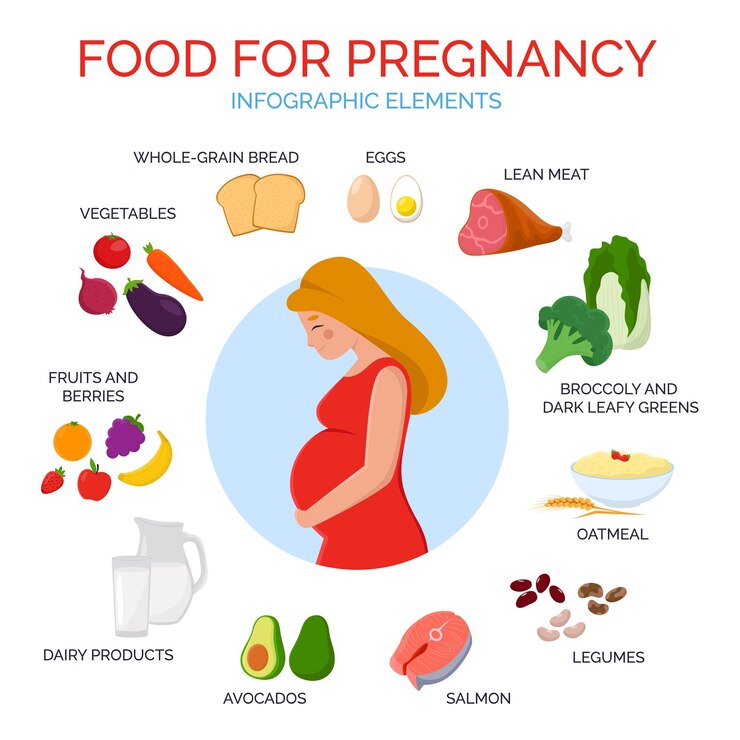Introduction
Good nutrition is essential for a healthy pregnancy. The food you eat not only supports your body but also provides the nutrients needed for your baby’s development. In this blog, we’ll explore what foods to eat and what to avoid during pregnancy to ensure both you and your baby stay healthy.
1. Essential Nutrients for a Healthy Pregnancy
Certain nutrients are especially important during pregnancy for both maternal health and fetal development.
- Folic Acid: Folic acid helps prevent neural tube defects in the baby. Include foods like leafy greens, beans, and fortified cereals in your diet to get enough folic acid.
- Calcium and Vitamin D: These nutrients support the development of your baby’s bones and teeth. Dairy products, leafy greens, and fortified foods are good sources of calcium, while Vitamin D can be obtained from sunlight and fortified milk.
- Iron: Pregnancy increases your need for iron to support your growing blood volume and prevent anemia. Foods like red meat, beans, and spinach are excellent sources of iron.
- Protein: Protein is vital for the growth of your baby’s tissues and organs. Lean meats, poultry, fish, and legumes are good protein sources.
2. Foods to Avoid During Pregnancy
Some foods should be avoided during pregnancy to reduce the risk of infection or harm to the baby.
- Raw or Undercooked Meat and Fish: These foods can harbor harmful bacteria like listeria and salmonella. Always cook meat and fish to a safe internal temperature.
- Unpasteurized Dairy Products: Unpasteurized milk and cheeses can contain bacteria that may cause illness. Opt for pasteurized dairy products instead.
- High-Mercury Fish: Certain fish, like shark, swordfish, and king mackerel, contain high levels of mercury, which can harm your baby’s developing nervous system. Stick to low-mercury options like salmon and shrimp.
- Caffeine: While small amounts of caffeine are considered safe, excessive caffeine consumption can increase the risk of miscarriage. Limit your intake to 200 milligrams per day.
3. Tips for Healthy Eating During Pregnancy
Maintaining a balanced diet during pregnancy can be challenging, but these tips can help.
- Eat Small, Frequent Meals: Eating smaller meals throughout the day can help prevent nausea and keep your energy levels stable.
- Stay Hydrated: Drinking plenty of water is essential during pregnancy. Aim for at least 8-10 glasses of water per day to stay hydrated and support your baby’s development.
- Take Prenatal Vitamins: Even with a balanced diet, you may need a prenatal vitamin to ensure you’re getting all the necessary nutrients. Consult your healthcare provider for recommendations.
Conclusion
Nutrition plays a crucial role in pregnancy. By focusing on essential nutrients, avoiding harmful foods, and following healthy eating tips, you can support your body and your baby’s development throughout your pregnancy journey.


1 thought on “Nutrition During Pregnancy: Foods to Eat and Avoid”